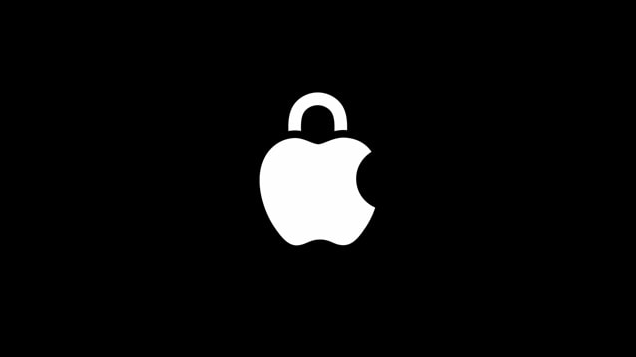Apple Transforms Siri Security: Next-Generation Privacy Features Explained
In a landmark announcement that has caught the attention of privacy advocates and tech enthusiasts alike, Apple has doubled down on its commitment to user privacy through Siri, its widely-used voice assistant. This comprehensive statement comes at a crucial time when digital privacy concerns are at an all-time high, particularly regarding the handling of voice data by tech companies.
The Privacy Controversy and Apple’s Response
The tech giant’s detailed privacy statement arrived in the wake of a significant legal challenge – a proposed class action lawsuit alleging unauthorized recording and commercialization of private Siri conversations. Breaking its usual silence on legal matters, Apple took a firm stance on its data handling practices, offering unprecedented transparency into Siri’s privacy-focused architecture.
“Privacy isn’t just a feature—it’s fundamentally woven into Siri’s DNA,” explained Apple in its newsroom post. The company emphatically stated, “Apple has never used Siri data to build marketing profiles, never made it available for advertising, and never sold it to anyone for any purpose.” This direct response addresses growing concerns about the commercialization of voice data in the tech industry.
Revolutionary Privacy Features: Under the Hood
Apple’s commitment to privacy manifests in several innovative technological implementations:
On-Device Processing: The First Line of Defense
A standout feature of Siri’s privacy architecture is its emphasis on on-device processing. Modern Apple devices equipped with the Neural Engine handle many voice commands locally, significantly reducing data transmission to external servers. This includes sensitive operations like message reading and widget suggestions, ensuring personal content remains firmly within the device’s secure environment.
Minimal Data Collection: Less is More
For features requiring server interaction, Apple has implemented a sophisticated data minimization protocol. The company employs a unique random identifier system, deliberately avoiding association with users’ Apple accounts. This architectural choice creates an additional layer of privacy protection, making it virtually impossible to trace requests back to individual users.
Private Cloud Compute: The Future of Secure Processing
In perhaps its most innovative move, Apple has integrated its cutting-edge Private Cloud Compute technology for advanced Siri features. This system processes data in a temporary, secure environment, leaving no permanent digital footprint. The company emphasizes that even Apple itself cannot access this data, setting a new standard for privacy in cloud computing.
User Control and Transparency
Apple has placed significant emphasis on user autonomy in data sharing. The company clarified that audio recordings are only retained when users explicitly opt-in to help improve Siri’s functionality. This opt-in approach represents a departure from industry norms, where data collection often occurs by default.
Industry Impact and Future Implications
This comprehensive privacy framework could set new benchmarks for voice assistant technology. As digital privacy concerns continue to shape consumer choices, Apple’s approach might influence how other tech companies handle voice data and user privacy in general.
Looking Ahead: The Evolution of Private Voice Technology
Apple’s commitment to developing even more private features for Siri suggests an ongoing evolution in voice assistant technology. This forward-looking stance indicates that privacy will remain a central focus in future iterations of Siri and other Apple services.
The tech giant’s detailed privacy revelations come at a crucial time when consumers are increasingly conscious about their digital footprint. By maintaining transparency about its privacy practices while continuing to innovate in secure processing methods, Apple appears to be setting a new standard for privacy-focused voice assistance technology.
This thorough examination of Siri’s privacy features not only addresses immediate concerns but also positions Apple as a leader in secure voice assistant technology, potentially influencing the broader tech industry’s approach to user privacy and data protection.
Frequently Asked Questions About Siri’s Privacy Features
Q: Does Apple sell or share Siri conversation data with advertisers?
No, Apple has explicitly stated that they have never sold Siri data to third parties, used it for marketing profiles, or made it available for advertising purposes. All voice data is protected under their privacy-first approach.
Q: How does Siri process my voice commands securely?
Modern Apple devices use on-device processing through their Neural Engine for most voice commands. This means your voice data stays on your device rather than being sent to external servers. For features requiring server access, Apple uses random identifiers instead of your Apple ID to maintain privacy.
Q: Can Apple employees listen to my Siri conversations?
Apple only records and reviews Siri conversations when users explicitly opt-in to share their data to improve Siri’s functionality. Without this opt-in consent, your audio conversations remain private and are not recorded or stored.
Q: What happens to my data when Siri needs to use cloud processing?
Apple uses Private Cloud computing technology, which processes data temporarily and doesn’t store it beyond the processing time. Even Apple cannot access this data, and the system is designed to use minimal information necessary to complete requests.
Q: How does Siri handle message reading and personal information?
When Siri reads messages or provides personalized suggestions, this processing happens directly on your device. The content of your messages never leaves your device unless specifically required to complete a request.
Q: What’s different about Apple’s privacy approach compared to other voice assistants?
Apple emphasizes data minimization, on-device processing, and explicit user consent for data sharing. They use random identifiers instead of personal accounts for server-processed requests and implement Private Cloud computing for advanced features.
Q: Can I control what data Siri collects about me?
Yes, Apple provides user controls for Siri data collection. You can choose whether to share your audio recordings for Siri improvement, and the system is designed to collect only the minimum data necessary for functioning.
Q: How long does Apple keep Siri request data?
For server-processed requests, data is only kept for the duration needed to process the information. Through Private Cloud computing, data is temporarily processed and not stored beyond the completion of the request.
Q: Is my Siri usage linked to my Apple ID?
No, Apple specifically designs Siri to avoid linking requests to Apple IDs. Instead, they use random identifiers to track data during processing, enhancing user privacy.
Q: What security measures protect Siri data during server processing?
When server processing is required, Apple employs data minimization techniques and private cloud computing technology. This ensures that only essential data is transmitted and processed in a secure, temporary environment.
Information and Image (credit) Source: Apple




